Education International (EI)
International Workers’ Memorial Day on occupational health and safety, observed the 28th of April every year. The international day was born in 1996 to mourn those who had died on the job and to fight for the living. It has spread to all continents of the world.
On this day, EI mourns all workers, but especially education workers, who have died at work and in the line of duty. We also will fight for their health and lives in the present and for the future.
COVID-19 is a pandemic that is lethal on a large scale. For those in direct contact with others, including many working in education, it is an occupational health and safety challenge. Some deaths, with proper precautions and protections, could have been avoided.
Although in our sectors, many are tele-working or on leave, this will change with the opening of schools. Already, opening dates have been announced in several countries. With re-opening, in addition to the ongoing public health danger to all, exposure at the workplace will become a major, perhaps the major risk.
COVID-19 and other infectious diseases contracted at work, should be recognised. They should be given the same treatment, including compensation, as other occupational diseases.
Every situation is different. In countries where great progress has been made and where tests and protective devices are widely available, reopening may be relatively safe. However, even in those situations, there may be a risk of unleashing a second wave.
Regardless of circumstances, even though more information is becoming available, what is not known about this virus remains more important than what we know. It is another reason that re-opening must be careful and methodical.
Social distancing, a crucial element of the combat against COVID-19, under the best of circumstances, will be difficult in schools and, in some cases, may be impossible. Hallways and staircases in many schools before the pandemic were already too narrow to easily accommodate normal traffic.
For small children, social distancing is bizarre behaviour and hard to understand. Even for older students, it may be difficult to respect due to limits of space, but also because of the normal rush of school life; getting from one class to another, to lunch and leaving at the end of the day. That means that social distancing will require considerable logistical and cultural changes.
To make school reopening as safe as possible, a number of factors need to be taken into consideration. They include whether there has been a significant decline in the general risk, the existence of widespread testing and monitoring, the availability of protective devices, regular disinfection, and modifications of physical arrangements and measures such as staggered classes and reduced class sizes. Such protections will be especially challenging in countries with limited possibilities to provide those protections and weak public health systems.
Workers in education, particularly teachers, are often older than the larger population because it has been hard, in recent years, to recruit new talent. That means that teachers may be especially vulnerable to infection. Education personnel, particularly from high-risk groups, should not be required to go back to school. They should be permitted to continue to work from home or make other arrangements.
Work-related stress has become a major issue for teachers in many countries as has been documented by the recent OECD TALIS report. Existing stress factors in education will be aggravated by fear of contamination during re-opening and, perhaps, for months to come.
In some countries where school re-opening has been scheduled, there have been consultations and/or negotiations with education trade unions on the details of occupational health and safety protections. Often, they are the same countries, with strong social dialogue traditions, where there were already discussions of closures.
However, the EI survey of member organisations on COVID-19 showed that the governments that acted correctly at that time were exceptional. Reopening decisions are neither urgent nor abrupt. They are planned. Trade unions should be fully involved in reopening planning and decisions.
David Edwards, Education International General Secretary stated: “For growing numbers of workers in education and other sectors, the worksite will become the greatest source of risk for COVID-19. There is no excuse for not involving the representatives of workers, their trade unions, in reopening decisions and ongoing occupational health and safety vigilance. It is the health and lives of those workers that are most at stake.”
“The reopening of schools can be a massive risk for teachers and other education workers. Every effort should be made to ensure that risks are reduced to the minimum through best practices based on science, not politics, and anchored in cooperation and social dialogue.”
“COVID-19 may be a natural disaster, but avoidable illness and death is human failure. International Workers’ Memorial Day is, in this dark year, not only a way to recognise those who have already sacrificed, but to chart a path that restores trust and hope and gives us a glimpse of the light at the end of the tunnel.”
The Statement of the Council of Global Unions on the recognition of COVID-19 as an occupational disease, released on the occasion of International Workers Memorial Day 2020, is also available here
https://www.ei-ie.org/en/detail/16753/international-workers-memorial-day-2020-and-covid-19-mourn-for-the-dead-and-fight-for-the-living
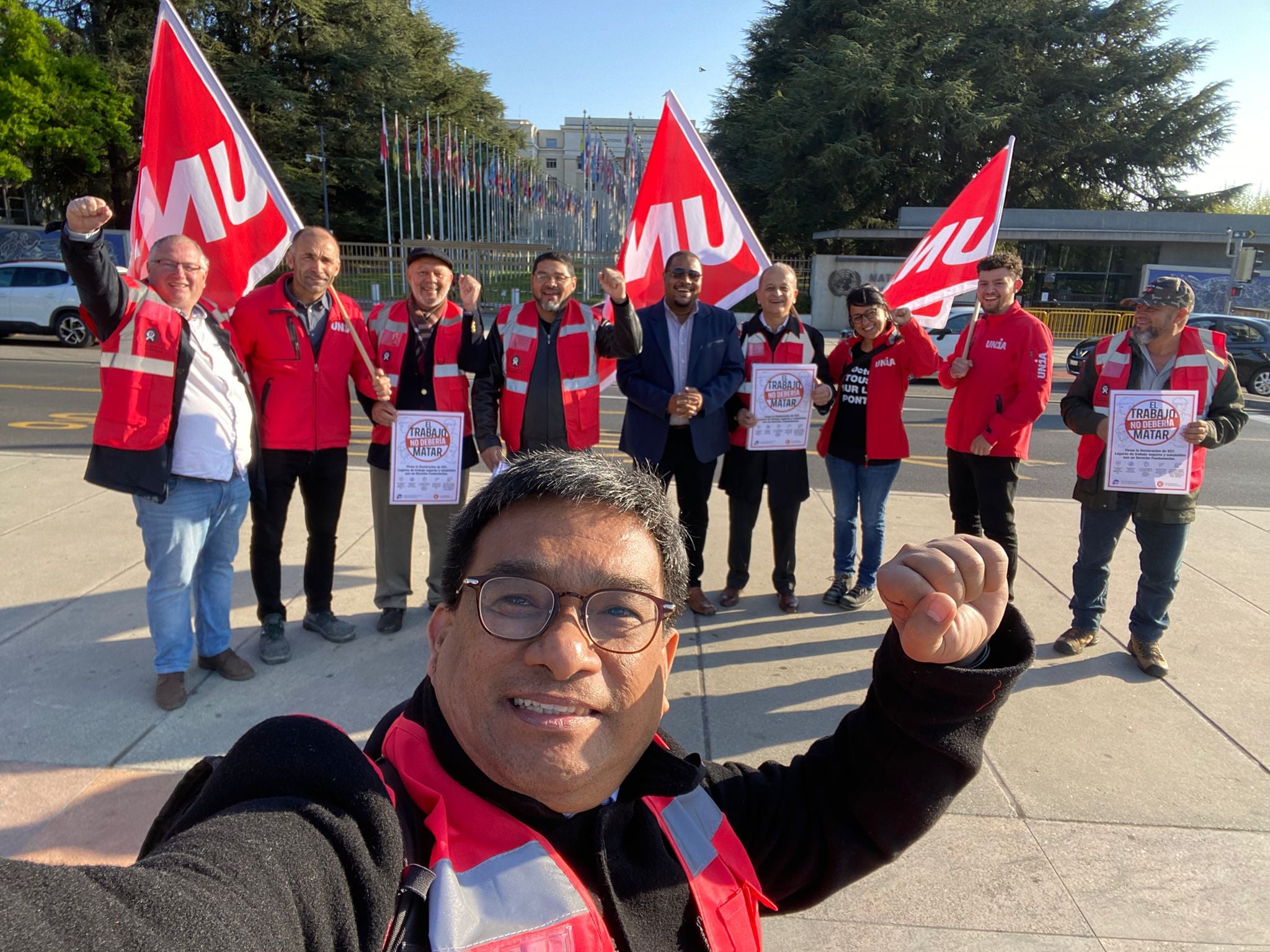
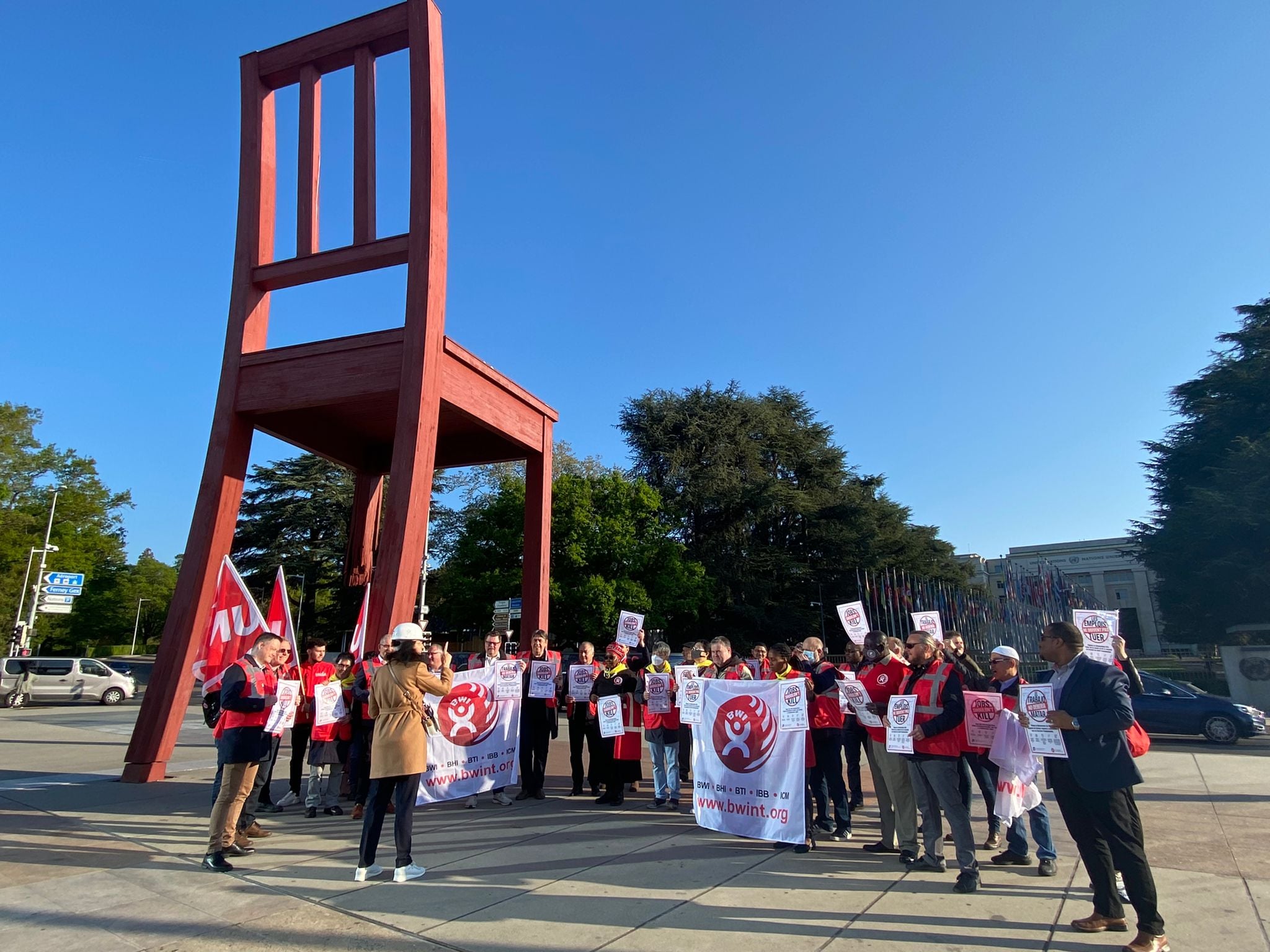

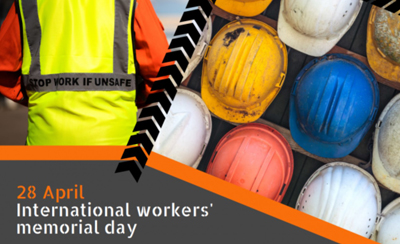

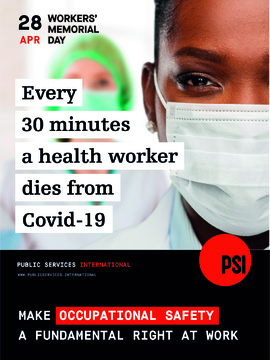
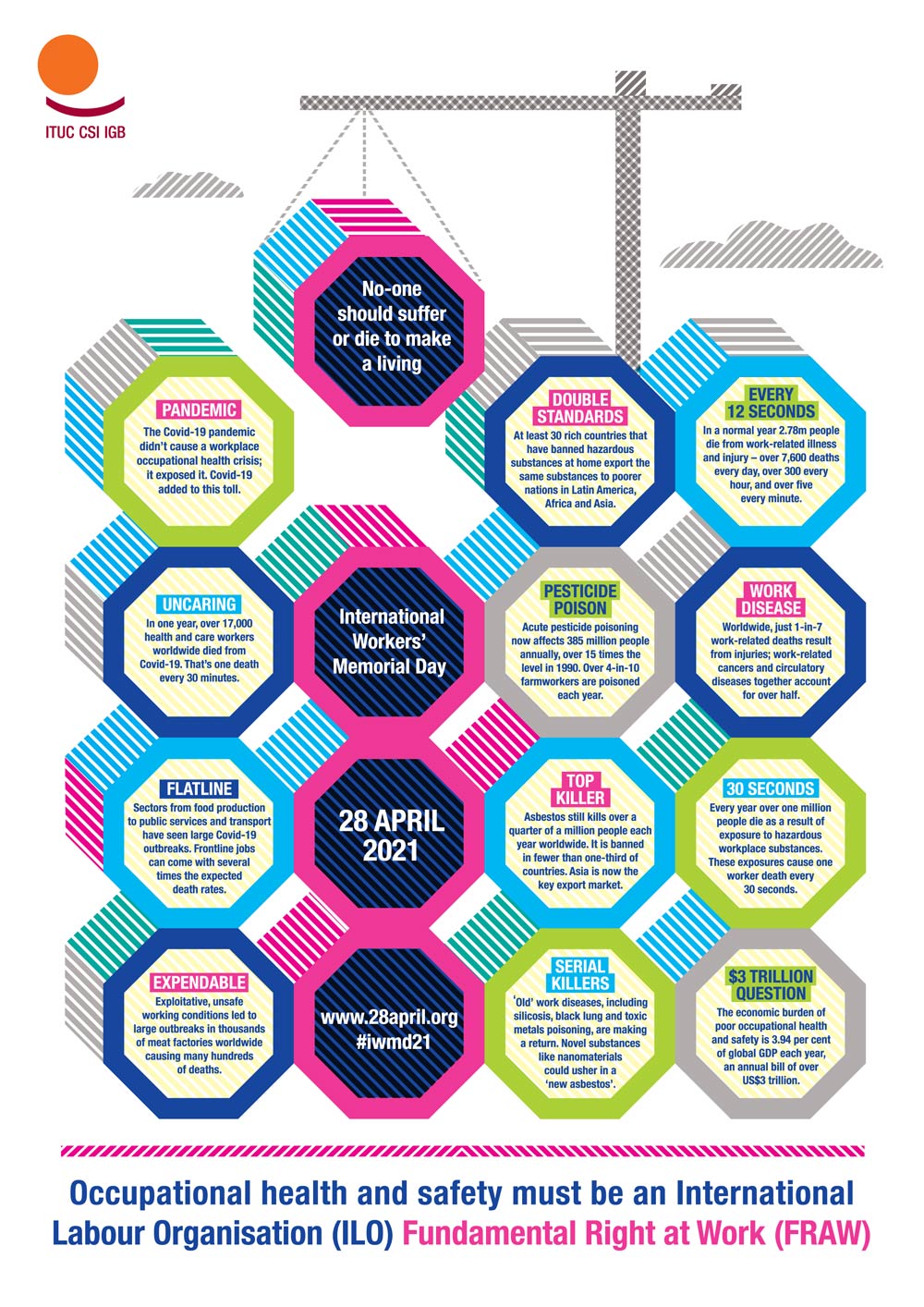 An
An 